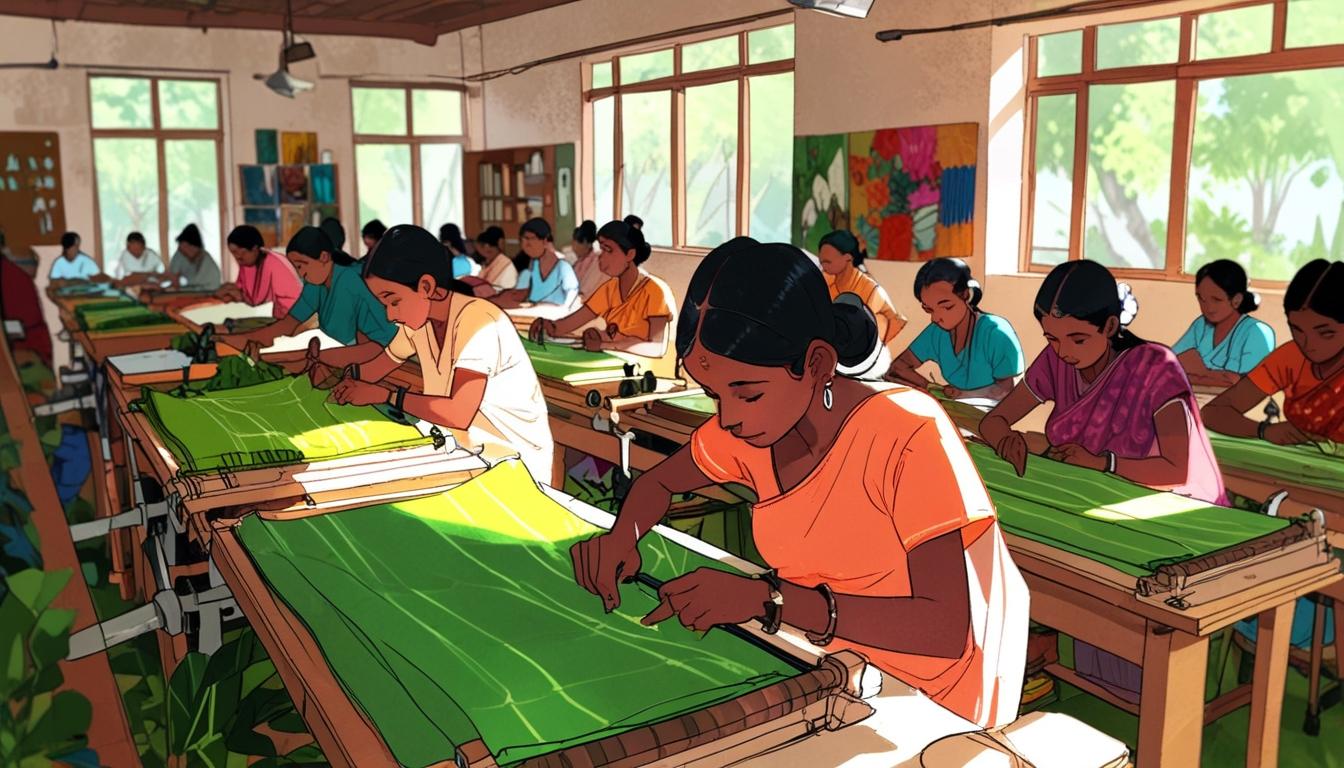Tamil Nadu: Fairtrade India has introduced the Sustainability Clinic in collaboration with the Centre for Social Markets to guide textile manufacturers, particularly MSMEs, towards sustainable practices, addressing challenges like climate change while enhancing welfare for farmers and workers across the industry.
Fairtrade India, a notable participant in the global Fairtrade movement, is dedicated to promoting ethical and sustainable trade practices across various sectors, particularly textiles. The organisation is committed to enhancing the welfare of farmers, workers, and businesses, while simultaneously adhering to environmental and social sustainability principles. This commitment is essential as it aligns with the increasing global emphasis on sustainable trade, addressing significant challenges such as climate change and social inequity.
To bolster these efforts, Fairtrade India has launched the Sustainability Clinic, an initiative in collaboration with the Centre for Social Markets (CSM). This programme aims to provide expert guidance to textile manufacturers, including micro, small, and medium-sized enterprises (MSMEs), in adopting sustainable practices. According to Fairtrade India CEO Abhishek Jani, the clinic focuses on critical areas including carbon reduction, water and waste management, energy efficiency, and chemical safety.
The organisation’s overarching mission aligns with the growing global focus on sustainability, as Jani highlighted the need to empower farmers and workers through the implementation of sustainable production methods. By adhering to international standards, Fairtrade India promotes better prices for farmers and safer working conditions, thus contributing to several United Nations Sustainable Development Goals. This focus is particularly timely, given the increasing regulatory emphasis on responsible business conduct worldwide.
Consumer awareness and demand play pivotal roles in driving sustainability within the textile industry, influencing businesses to adopt ethical practices. As consumers seek transparency and sustainable products, Fairtrade India engages in educating the public about the importance of Fairtrade-certified fashion. This initiative aims to deepen the connection between consumers and producers, encouraging informed purchasing decisions that advance ethical production standards.
Moreover, Fairtrade India actively collaborates with policymakers to promote sustainability within the sector. Through various programmes that align with government policies, the organisation fosters the adoption of greener technologies and supports MSMEs in navigating regulatory frameworks. These efforts are shared with policymakers to facilitate informed decision-making.
The Sustainability Clinic, launched in response to heightened demand for sustainable practices, specifically targets the textile sector. The initiative addresses various challenges faced by manufacturers, particularly MSMEs, including limited knowledge and access to financing. It offers tailored assistance through a helpline and direct consultations, ensuring that manufacturers can implement sustainable practices effectively.
Tamil Nadu has been chosen as the pilot region for the Sustainability Clinic due to its prominence in textile production. This state hosts notable textile hubs, including the Tiruppur cluster, a significant exporter of knitted garments. The initiative aims to integrate sustainable practices into local manufacturing, particularly benefitting MSMEs critical to the regional economy. Key challenges tackled include water usage, emissions, and the management of toxic chemicals.
Since the pilot programme’s inception, over 200 factories in Tamil Nadu have engaged with the clinic, leading to enhanced understanding of sustainable production practices. Notable improvements include better greenhouse gas emissions monitoring, more efficient wastewater management, and reduced toxic chemical usage. Feedback from manufacturers indicates a positive reception of the educational workshops and direct guidance offered through the clinic, underscoring its importance in facilitating transitions towards sustainability.
Partnerships, particularly with the Tiruppur Exporter’s Association (TEA) and funding from the European Union’s SWITCH ASIA programme, have been instrumental in the initiative’s success. TEA has provided essential local support and feedback, ensuring that the clinic remains relevant to regional needs. The cooperation with EU funding has enabled the programme to deliver necessary resources and expertise for effective implementation.
The Sustainability Clinic’s long-term goal is to position India as a global hub for sustainable textile manufacturing. Plans to expand beyond Tamil Nadu include tailoring support for manufacturers across various regions, addressing unique local challenges while fostering a robust network for sustainable practices. Workshops and webinars have proven effective in educating participants about practical measures and driving awareness within the industry.
Beyond the Sustainability Clinic, Fairtrade India engages in various initiatives to elevate sustainability within the textile sector, such as promoting Fairtrade certification and collaborating with brands to create more accessible sustainable fashion options. Educational outreach in schools furthers awareness about sustainable consumption, preparing the next generation to advocate for ethical practices.
As global demand for fair trade and sustainable practices increases, Fairtrade India envisions playing a transformative role in multiple industries, fostering responsible pathways that benefit both communities and the environment. By empowering local stakeholders and enhancing awareness, Fairtrade India aims to embed sustainability at the core of India’s industrial framework.
Source: Noah Wire Services




